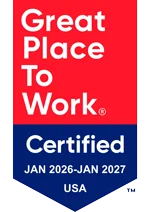BLOG TOPICS
Why Your Holiday Let Needs A Revenue Management Strategy (Yes, Even in the UK!)

That cozy Lake District holiday let with the gorgeous hot tub you’re so proud of? It earned thousands less than it could have last year.
Your stylish Edinburgh flat with amazing photos on Airbnb? It sat empty for a month’s worth of nights that should have been booked.
The culprit? Your pricing strategy. Or rather, your lack of one.
If you're still setting rates based on "what feels right" or copying the property down the street, you're leaving money on the table while your competitors clean up.
The pricing problem nobody talks about
The UK's short-term rental market is worth billions of pounds. Yet around 80% of hosts are still using stone age pricing methods – setting one rate and hoping for the best.
Result? Millions of pounds in lost revenue every single year.
While you're wondering why bookings are slow, dynamic pricing users are capturing premium rates during peak demand and maintaining steady occupancy when others struggle.
Your competition isn't playing fair
Here's what's really happening while you sleep:
Your tech-savvy competitors are using AI-powered tools to adjust prices 24/7, responding to demand shifts in real-time. When Oasis announces a surprise Manchester gig, their rates automatically increase. When the weather forecast predicts a sunny Lake District weekend, they’re already capitalising.
Professional property managers are using sophisticated revenue optimisation that would make hotel chains jealous. They're not just competing on amenities – they're outmanoeuvring you on pricing intelligence.
Meanwhile, you're still manually checking competitors once a month (if you're lucky) and wondering why your occupancy rates are plateauing.
The three pillars that separate winners from losers
1. Dynamic pricing (the money multiplier)
Static pricing is a fool’s game. A weekend in your Edinburgh flat during the Fringe could command three times your normal rate. Are you capturing that? Or are you leaving hundreds on the table because you set one "fair" price?
2. Occupancy optimisation (the vacancy killer)
Empty nights are profit killers. Revenue management isn't just about high rates – it's about the perfect balance. Would you rather have 70% occupancy at £150 per night or 85% at £130? The sums might surprise you.
3. Predictive intelligence (the crystal ball)
Top performers don't just react – they predict. They know when to open their calendar, when to hold back inventory, and when to drop prices to capture last-minute bookers. They're playing chess while others play checkers.
Stop guessing. Start earning.
The hosts making serious money aren't smarter than you. They're just using smarter tools.
Beyond's revenue management platform does what you physically can't. It monitors thousands of data points, tracks your entire market, and adjusts your pricing every single day to maximise revenue.
Some property managers who switched to Beyond achieved a 40% revenue increase in the first year, with the average boost being about 18%.
Your next move
Stop accepting "good enough" returns from your property investment.
Get your free Market Trends Report from Beyond and see exactly what's happening in your local market. You'll discover:
- How much money you're leaving on the table.
- When your competitors are charging premium rates (and why).
- The booking patterns that could transform your revenue.
Your property is an asset, not a hobby. It's time to treat it like one.






















